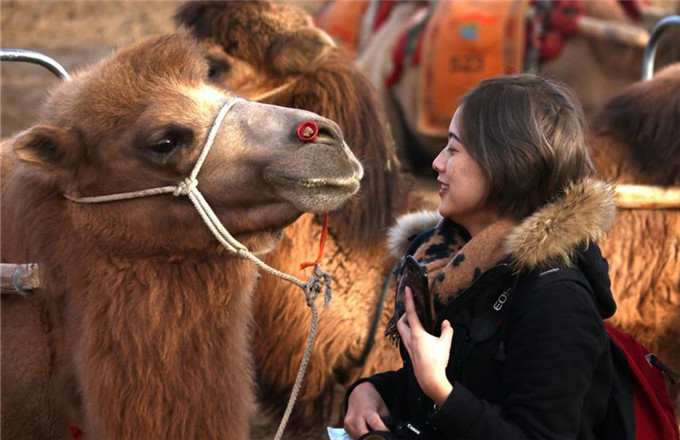Draft on animal regulations solicits debate
Beijing's new draft regulations for animal epidemic prevention, released last week to gauge public opinion, have aroused a heated debate among local pet owners.
Animals, including cats and dogs, might be forbidden from public transport in an attempt to cut down the transmission of animal diseases, according to the draft released on the official website of the Legal Affairs Office of the People's Government of Beijing Municipality on Tuesday.
"Guide dogs are a necessity in life for physically challenged people, and it's depriving those people of the rights of travel if dogs are prohibited from public transportation," said Niu Qianqian, a 26-year-old Beijing resident of Dongcheng district.
"We should be very thoughtful and consider everything before putting a regulation into enforcement, and it's very wrong to ignore the rights and voices of vulnerable groups," she said.
Ping Yali, a gold medalist from the Paralympic Games in New York in 1984, heavily relies on Lucky, Beijing's first trained guide dog. Ping echoed Niu's sentiments.
"Guide dogs are necessary in our lives," said the visually impaired athlete.
In an attempt to prevent the transmission of animal epidemics that could affect humans, the draft also increases regulations on mandatory vaccination of dogs and requires those that have been vaccinated against rabies and other diseases to wear visual identification to distinguish them from those without such vaccinations.
The draft also requires that the bodies of animals that died for unknown reasons be treated in a sterile manner, together with any related animal products, so as to prevent the transmission of diseases.
Dennis Schenk, an American certified canine behavior specialist and professional dog trainer in China, said despite its good intention to prevent animal disease transmission, the panic and overly strict regulations originate from a lack of knowledge and understanding of dogs.
"Many Chinese people, especially pregnant women, are very concerned that animals might transmit diseases to us, but the truth is there are very few diseases we can get from cats or dogs," he said.
"There is no 'bad dog' but only untrained owners, and it's unfair to blame everything on the dogs without self-reflection on ourselves," he said.
Schenk said instead of banning animals from public transport, the government should work more to enforce people's awareness of responsibility for their dogs, especially in public.
Despite the impressive number of pet dogs in the city, many people do not really understand their pets or how to communicate with them, he said.
Website to make your voice heard: http://www.bjfzb.gov.cn/fzb_cazjyj/index.htm
The draft: http://210.73.64.50/advice/user/content_new.asp?UNID=433&law_style=1






















